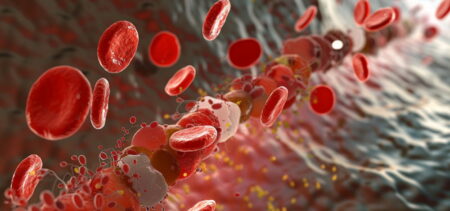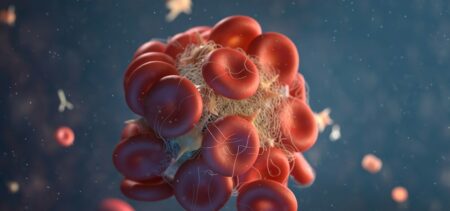High blood pressure (BP) is considered a public health emergency among many healthcare institutions due to the significant number of patients with this condition. In fact, the World Health Organization (WHO) confirms that there are over 700 million people living with untreated hypertension, while more than 1.28 billion have this illness.
In response to the ongoing concern of hypertension, especially among young adults, researchers from UC Davis conducted a study to determine a link between high BP and negative brain health in participants in their 70s.
This article will dissect the study by UC Davis researchers and how what the results are. In addition, we will explore the state of high BP in the US and other long-term health concerns for young people with hypertension.
High Blood Pressure in the US
High blood pressure, also known as hypertension, is highly prevalent among US citizens, with 47.3% of the population (116 million) suffering from this condition. Yet only 20% of US citizens with high BP are unaware they have it. And among those who are aware of their condition, less than 50% are managing it well. Additionally, hypertension contributes to nearly 1000 deaths daily, costing the nation $47.5 billion in annual health fees and $3.5 billion in lost productivity.
Furthermore, according to research by SpringerLink, high BP is much more common in men than women, yet conditions in females appear more potent. A study by the Centers for Disease Control and Prevention (CDC) confirms that 1 in 25 youths between 12 and 19 suffer from hypertension. In addition to the significant number of young people with high BP, a study by UC Davis has developed a connection between high BP in 30-year-olds and declining brain health when they reach 70.
How UC Davis Connects High BP to Declining Brain Health
Researchers from UC Davis conducted a study on the relationship between high BP and brain health. This is the method UC Davis researchers used to understand how high BP in 30 to 40-year-olds can negatively impact brain health decades later, and the results they obtained.
The Method
UC Davis researchers referred to the health data of 427 participants in the Study of Healthy Aging in African Americans (STAR) and the Kaiser Healthy Aging and Diverse Life Experiences (KHANDLE) study. Using 1964 to 1985 data from a diverse pool of 30 to 40-year-old participants from Caucasian, Asian, Latino, and Black demographics, they sampled two blood pressure readings.
The blood pressure tests helped researchers determine if any participant had been hypertensive, transitioning to hypertensive, or had healthy blood pressure. To identify biomarkers of neurodegeneration and White matter hyperintensities (WMHs), researchers conducted MRI scans of these participants between 2017 and 2022. Next, we will review the results of this study and how it authenticates a relationship between hypertension in young adulthood and declining brain health in the participant’s 70s.
The Results
While the sample size deterred researchers from examining racial and ethnic differences in high BP, they could identify that participants transitioning to or suffering from hypertension had lower cerebral gray matter volume. Reduced gray matter in the cerebral cortex indicates a higher risk of mental health disorders and loss of fine motor skills and cognitive functioning.
In addition, the participants with hypertension or transitioning to hypertension also showed signs of lower frontal cortex volumes and fractional anisotropy, which measures the brain’s connectivity. As confirmed by the Center for Academic Research & Training in Anthropogeny (CARTA), frontal cortex white matter describes the brain’s mental functions, such as decision-making and the ability to suppress inappropriate behaviors. As such, reduced volumes of white matter in the frontal lobe indicate a lack of these functions.
Similarly, low fractional anisotropy equates to lower brain connectivity. And with reduced volumes of gray matter and frontal cortex, UC Davis researchers could prove that high BP when a participant is 30 can negatively affect their mental functions, brain connectivity, and motor skills around age 70.
What Other Long-term Health Risks Does High BP Cause?
High BP causes many long-term health disorders, including neurotic behaviors, strokes, and heart attacks. Extensive research has been conducted to support the link between hypertension and these conditions.
Neurotic Behaviors
Neuroticism is a personality disorder that defines a person’s tendency to experience negative traits and emotions, such as anxiety, fear, guilt, mental stress, depression, and anger. According to Angelina Sutin, Ph.D.—a professor in the Department of Behavioral Sciences and Social Medicine at Florida State University, individuals with Neuroticism are at greater risk of chronic disease.
However, while Dr. Sutin confirms that Neuroticism is the strongest predictor of a mental health disorder and causes several chronic illnesses, a recent study suggests this can occur the other way. Based on this research, high BP can cause and negatively impact cases of Neuroticism, and individuals must actively control their BP levels to minimize (not eliminate) neurotic behaviors.
Strokes
As confirmed by the Stroke Association, there are many ways that hypertension can cause strokes. High BP causes damage to the patient’s blood vessels and increases bleeding in the brain, making an ischaemic stroke more possible. In addition, patients with hypertension are also more susceptible to hemorrhagic strokes, which are caused by damaged blood vessels inside the brain.
Furthermore, Psychiatric Times confirms that 10 to 15% of strokes occur in adults younger than 45. From this group of affected adults, 50% experience strokes due to cardiovascular diseases, including hypertension.
Heart Attacks
According to the Cardio Metabolic Institute, hypertension is one of the top reasons for heart attacks in individuals between 20 and 30. To further validate this, in a study by NCBI, researchers analyzed 17 cohorts of 4.5 million young adults over 14.7 years to determine the relationship between hypertension and cardiovascular events, such as heart attacks.
This study confirmed that as high BP causes damage to the heart muscle, the possibility of experiencing a heart attack is slightly higher once these patients are much older.
How Is the US Responding to High BP in Young Adults?
Hypertension is completely preventable for young adults who maintain lifestyle habits including:
- Consistent physical activity
- No smoking
- Limited alcohol intake
- Healthy sleeping habits
- Healthy weight range
- Stress management
However, once an individual is diagnosed with high BP, there is no cure, and the patient can only take steps to minimize the impact of hypertension on their life. In addition, individuals can take antihypertensive medication, which according to research, can reduce the effects of high BP despite any underlining diseases patients may have.
Alongside medication for high BP, CDC also offers the Hypertension Management Program (HMP) Toolkit, to help healthcare providers deliver improved patient care. This is a remote, team-based interactive course centered around the care of those diagnosed with high BP and how hospitals can leverage the resources they need for optimized awareness and treatment.
In Closing
Based on research by UC Davis Health, high BP when an individual is 30 years old will negatively impact their brain health in their 70s. The study revealed that in their 70s, participants showed reduced levels of gray matter, which can cause mental health disorders and loss of motor skills. In addition, researchers identified lower levels of the frontal cortex and fractional anisotropy, which negatively affect the brain’s mental functions and connectivity.
Young adults with high BP are at risk of several long-term health conditions, including neurotic disorders, strokes, and heart attacks. However, while hypertension cannot be cured, there are medications and programs to guide healthcare providers and patients.


























